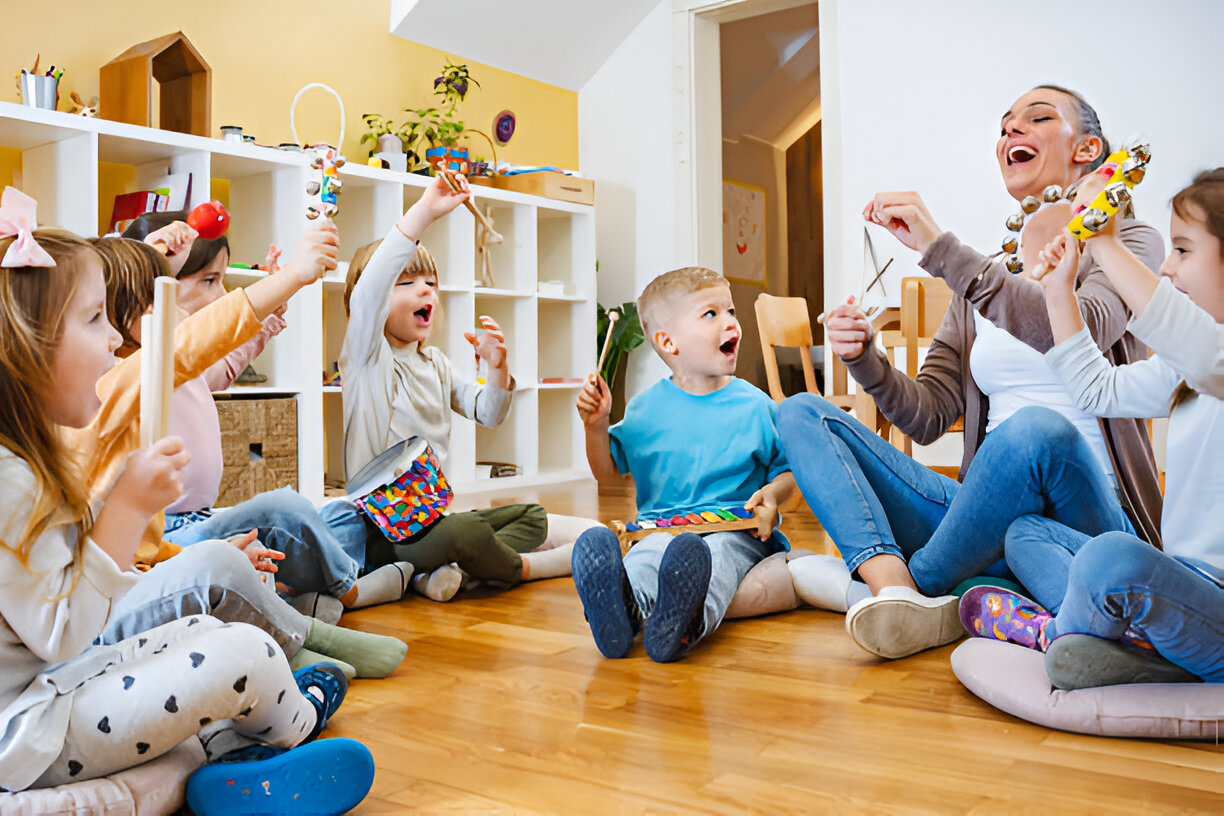When choosing the right early learning environment for your child, parents often come across two main terms: Montessori preschool and traditional preschool. While both aim to prepare young children for school and life, the philosophies, teaching styles, and classroom environments differ greatly.
What is a Traditional Preschool?
A traditional preschool is typically structured with a set curriculum focused on preparing children for primary school. Activities are teacher-led and designed to build early literacy, numeracy, and social skills. Children work together in groups, follow instructions from educators, and are usually grouped by age.
Key Features of Traditional Preschool
- Teacher-directed learning
- Fixed daily schedule
- Same-age peer groups
- Focus on academic readiness
- Emphasis on group activities and routine
Traditional preschool encourages a more classroom-based experience, preparing children for the structure they will face in primary school.
What is a Montessori Preschool?
A Montessori preschool follows the philosophy of Dr. Maria Montessori, an Italian physician and educator. It is a child-centred approach that encourages independence, freedom within limits, and respect for a child’s natural psychological development.
Key Features of Montessori Preschool
- Child-led learning at their own pace
- Mixed-age classrooms (usually 3–6 years)
- Specially designed materials for hands-on learning
- Emphasis on practical life skills
- Teachers act as guides rather than instructors
Montessori classrooms are calm, orderly environments where children move freely and choose activities based on their interests.
Montessori vs Preschool: A Side-by-Side Comparison
| Feature | Montessori Preschool | Traditional Preschool |
| Learning Style | Child-led and self-paced | Teacher-led and structured |
| Classroom Structure | Mixed-age groups | Same-age groups |
| Role of Teacher | Guide or observer | Instructor or leader |
| Curriculum | Flexible, interest-based | Fixed curriculum |
| Materials | Montessori-specific tools | Standard toys and learning aids |
| Focus | Independence, sensory learning | Early academics and social interaction |
| Assessment | Observational, non-graded | Standard assessments and progress reports |
Benefits of Montessori Preschool
- Encourages Independence: Children take responsibility for their own learning and daily routines.
- Supports Individual Growth: Activities cater to the child’s developmental stage rather than age.
- Fosters Concentration and Focus: Calm, uninterrupted work periods help children develop focus.
- Builds Confidence and Responsibility: Freedom of choice teaches accountability and confidence.
Is Montessori Better Than Traditional Preschool?
There is no one-size-fits-all answer. Each child is unique, and what works well for one may not suit another. Parents should consider:
- Their child’s temperament and learning style
- The values and approach that align with their family
- Whether their child thrives in structure or freedom
If your child is naturally independent, enjoys hands-on learning, and works well at their own pace, a Montessori preschool may be a better fit.
How to Choose the Right Preschool
Here are a few tips to guide your decision:
- Visit Both Types of Schools: Observe the classroom environment, teaching styles, and how engaged the children are.
- Speak with Educators: Understand their philosophy and how they track your child’s development.
- Evaluate Your Child’s Needs: Think about how your child responds to structure, routine, or independent tasks.
- Review Ofsted Reports:Ofsted reports provide insight into a school’s quality and safety.
The Role of Rare Learning in Early Childhood Development
At Rare Learning, we believe in empowering parents with the knowledge to make the best educational choices for their children. Whether you lean towards a Montessori preschool model or prefer a traditional setup, our team is here to guide you through every stage of the early education journey.
We support families by offering resources, expert consultations, and access to quality early years programmes that fit various learning philosophies and goals.
Final Thoughts
Choosing between Montessori and traditional preschool is a deeply personal decision. Both paths can provide children with strong foundations, but understanding their differences helps parents select the environment where their child will thrive most.
Whether it’s structured guidance or self-driven exploration, the key is finding a setting that nurtures your child’s curiosity, confidence, and love for learning.
Frequently Asked Questions
1. Is Montessori preschool suitable for every child?
While many children thrive in Montessori settings, highly structured learners or those who need more direction may do better in traditional preschool models.
2. How does Montessori handle discipline and rules?
Montessori schools focus on teaching self-regulation and respect. Rules are built into the environment, and children learn natural consequences rather than being punished.
3. Do Montessori schools follow a national curriculum?
Montessori programmes follow their own educational philosophy but still address key learning areas aligned with early years goals.
4. Will Montessori prepare my child for primary school?
Yes, but in a different way. Montessori prepares children with practical life skills, emotional resilience, and independence, complementing academic readiness.

